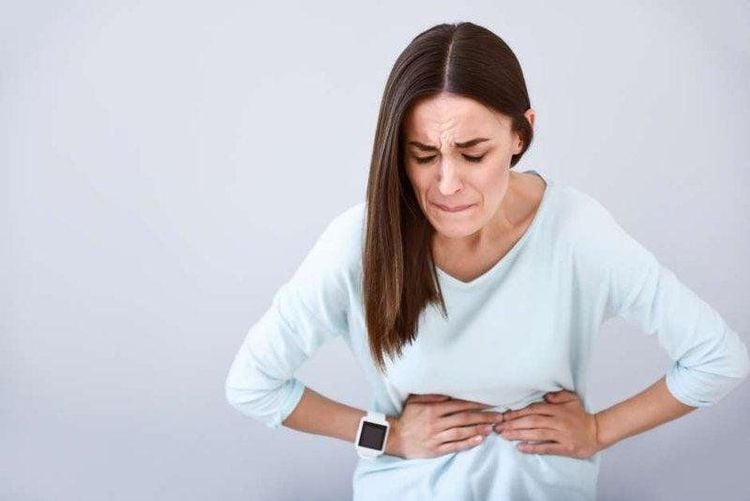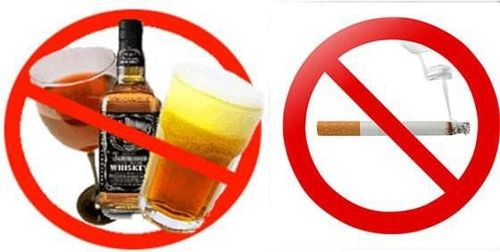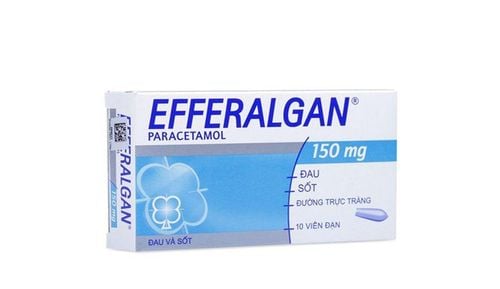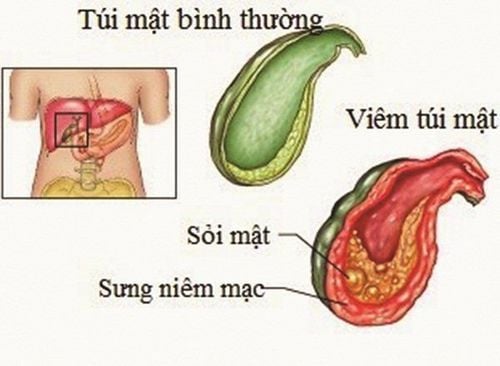This is an automatically translated article.
The article is professionally consulted by Doctor Department of Gastroenterology - Endoscopy, Vinmec Central Park International General Hospital.
Peptic ulcer disease is a common disease in most people. In the stage of newly discovered peptic ulcer disease, the disease can be completely cured, however, when the ulcer disease becomes chronic, the treatment of this disease will face many difficulties. can easily cause undesirable side effects.
So what is peptic ulcer disease? What are the causes and treatment of the disease? In this article, we will help readers learn more about peptic ulcer disease.
1. What is peptic ulcer disease?
Peptic ulcer disease is a disease that causes inflammation and ulcers on the lining of the stomach or duodenum (the first part of the small intestine). These injuries occur when the lining (the innermost lining) of the stomach or duodenum is worn away and the layers below the stomach or intestinal wall are exposed. Duodenal ulcers accounted for 95%, gastric ulcers accounted for 60%, of which ulcers in the small curvature of the stomach accounted for 25% of cases.
2. Risk factors for peptic ulcer disease
These are favorable factors that easily lead to peptic ulcer disease.
2.1. Regularly smoke and drink alcohol (or other alcoholic beverages).
Did you know that cigarette smoke contains more than 200 types of substances that are harmful to human health, especially nicotine. Nicotine will stimulate the mechanism to release more cortisol – this is the main factor that increases the risk of stomach ulcers.
2.2. nervous tension (stress)
People who are often stressed and anxious will be at risk of peptic ulcer disease, because prolonged stress has a great effect on acid secretion in the stomach.

2.3. Irregular eating and living habits
The irregular personal activities such as staying up late, skipping breakfast or eating at the wrong time, eating habits late at night, being lazy... not only seriously affects health but also weakens health. Predisposing factors for peptic ulcer disease.
3. Causes of peptic ulcers
The two main causes of peptic ulcers are infection with Helicobacter pylori (H. pylori) bacteria or the use of nonsteroidal anti-inflammatory drugs (NSAIDs) commonly used to treat joint pain.
3.1. Helicobacter pylori (HP) infection
This is one of the main factors that directly affect peptic ulcer disease. After entering the body, the bacteria will get into the mucous layer that protects the stomach and duodenum mucosa and secrete toxins that lose the function of the mucosa against acid.
3.2. Regular use of drugs with analgesic and anti-inflammatory effects
It is the second most common cause after Helicobacter pylori infection. Long-term use of anti-inflammatory and analgesic drugs in the elderly, inhibiting the synthesis of prostaglandins, which are substances that have a protective effect on the gastric mucosa, are reduced, causing peptic ulcers.
4. Signs of stomach ulcer disease
4.1 Pain in the abdomen above the navel (also known as epigastric pain)
This is one of the main signs of stomach ulcers. If duodenal ulcer, the pain will usually appear on fasting or after eating about 2-3 hours, may hurt in the middle of the night in the morning, spreading to the back. The pain appears dull, abdominal pain or cramping pain intermittently. You should limit eating sour, spicy foods... when you're hungry.
4.2. Bloating, indigestion, nausea or vomiting.
Some symptoms such as bloating, nausea are also one of the frequent signs of peptic ulcer disease.
The feeling of fullness and indigestion is due to the stomach being damaged, leading to slow digestion, making the patient often feel bloated and gassy.
4.3. Insomnia, not sleeping well
Insomnia or sleep is often disrupted due to abdominal bloating, heavy stomach feeling indigestion, or pain in the middle of the night.
4.4. gas, heartburn, or epigastric burning
Most patients with peptic ulcer disease have these symptoms. Heartburn, or heartburn, are very common signs in patients who are sick in the early stages.
Ợ epigastric burning is more common in patients with gastroesophageal reflux disease.
4.5. Digestive disorders
Another sign of peptic ulcer disease is diarrhea or constipation. Due to unstable digestion, people with peptic ulcer disease often lose weight. But conversely, because pain symptoms often occur on an empty stomach, patients often eat more, which can also cause rapid weight gain.
However, the above symptoms are only suggestive and cannot be diagnosed accurately. Patients should go to the hospital for specialized procedures, laboratory tests, and especially gastroduodenal endoscopy. Endoscopy method will help us know the exact location, extent of damage of peptic ulcer disease, or HP infection. From there, the doctor can give the most appropriate and effective indications and treatment regimens for patients with peptic ulcer disease.

5. How to treat peptic ulcer disease
Peptic ulcer disease at an early stage and detected in time will be easily treated. If the disease turns to a chronic stage, it will be difficult to cure completely and often cause unfortunate complications. Therefore, when we discover signs or symptoms that we may have a stomach ulcer, in addition to adjusting and maintaining the diet, rest and moderate activities, limiting eating stimulant foods, the patient should go to the nearest hospital or clinic for a diagnosis; at the same time have appropriate methods and treatment regimens.
The first is to immediately stop non-steroidal anti-inflammatory drugs (NSAIDs) or use Helicobacter pylori eradication regimens, if available. Currently, due to widespread drug resistance of bacteria, the most commonly used regimen is a 4-drug regimen with Bismuth or with Levofloxacin.
6. Consequences of peptic ulcer disease
Peptic ulcer disease, if not treated immediately, will become chronic and can hardly be cured completely. This disease can lead to serious health complications such as:
Gastroduodenal perforation: the sign of perforation is sudden severe abdominal pain. Upper Gastrointestinal Bleeding: Bleeding from an ulcer can lead to massive, life-threatening blood loss. Signs of a bleeding ulcer include symptoms such as dizziness, lightheadedness, vomiting of red blood or black stools. Pyloric stenosis: This is a form of fibrous inflammatory tissue that develops over an ulcer in the pylorus-duodenum, causing narrowing of the intestinal lumen just below the stomach, making it difficult for food to pass through the digestive tract. Signs of pyloric stenosis include vomiting, stagnation of stale food, and rapid weight loss. These complications are all very serious and may require surgery. You should go to the nearest hospital for urgent examination and treatment.
7. Diet for people with peptic ulcer disease?
Peptic ulcer disease is a disease that requires a suitable diet and requires a diet of some foods. Here are some foods that patients should and should not eat.
7.1. Foods that people with stomach and duodenal ulcers should eat
Milk and eggs will act as buffers to neutralize the amount of acid in the stomach. Milk, we should drink hot milk; Eggs should be eaten in the form of steamed or put in porridge, a week should only be eaten 2-3 times each time, about 1-2 eggs. Foods containing a lot of easy-to-digest protein: lean pork, lean fish, especially we should use it in the processed form, which is boiled, steamed, and stocked for easy absorption. Fresh vegetables and fruits: choose young vegetables, preferably cruciferous (cabbage, radish, or cruciferous vegetables) because this family of vegetables contains many vitamins for quick healing of digestive tract wounds. Starchy foods have little taste and are easy to digest, such as rice, bread, or porridge, cooked or boiled potatoes. Vegetable oils made from seeds such as sunflower oil, sesame oil, canola oil, or soybean oil...
7.2. What foods and drinks should not be used when having a peptic ulcer?
Processed cold meats such as ham, sausages, sausages. Hard, chewy foods such as meat with many tendons, cartilage, or vegetables with lots of fiber (old vegetables, celery sticks...) raw green fruits... Spices, garlic vinegar, chili peppers, or pickles salt, onion salt. Sour fruits such as lemon, toad, green mango, crocodile .... Types of carbonated water. Strong tea and coffee. Stop drinking alcoholic beverages such as beer and wine. If we get rid of this habit, it is not only good for the stomach but also good for the heart and liver. Quit smoking immediately, this will not only help you improve your gastroduodenal disease, but also help you avoid the risk of many lung diseases and diseases related to the respiratory tract.

7.3. Some points to note when preparing food for patients with peptic ulcer disease
Foods should be finely chopped, crushed, or cooked before cooking. The sick person should be able to eat the food immediately after it has been cooked.
8. How to prevent peptic ulcer disease
Some lifestyle choices and habits can reduce the risk of developing peptic ulcer disease. Includes:
No more than two alcoholic drinks per day. Limit your use of Ibuprofen, aspirin, and naproxen (NSAIDs). Wash your hands often with soap or water to avoid the risk of infection. Eat foods that have been fully cooked. Maintaining and implementing a healthy lifestyle by quitting smoking and using a nutritious and balanced diet rich in fruits, vegetables and whole grains will help prevent stomach ulcers. -duodenum and significantly improve his own health status. Through the above article, Vinmec International General Hospital hopes that you have gained general knowledge about peptic ulcer disease. At the same time, improving unhealthy habits makes the body healthier, especially our stomach.
Department of Endoscopy - Gastroenterology is one of the key specialties at Vinmec International General Hospital. To be examined, consulted and treated for digestive diseases, you can contact Vinmec Health System nationwide or register online on the website for service.
Please dial HOTLINE for more information or register for an appointment HERE. Download MyVinmec app to make appointments faster and to manage your bookings easily.













